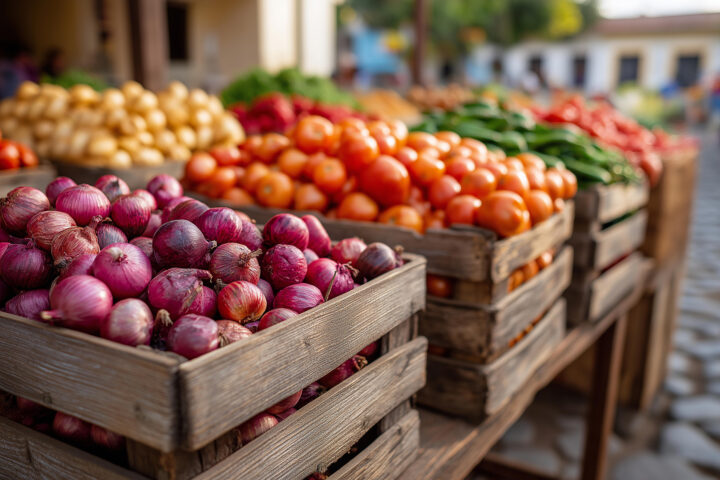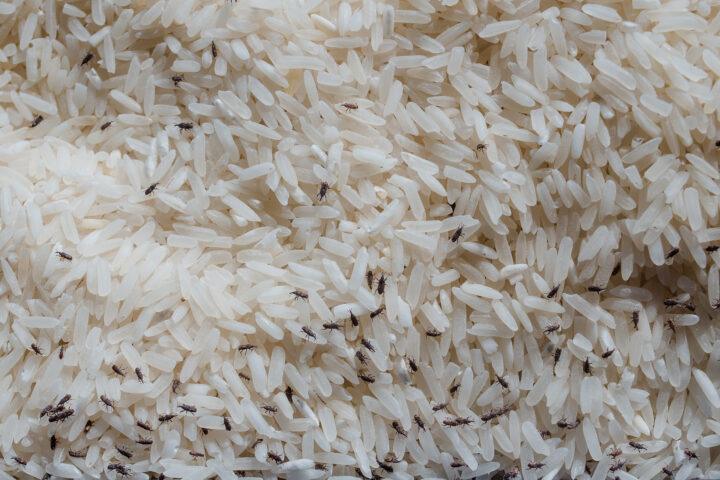
Pesticide cuts
In Switzerland, a growing number of pesticides are being banned by the authorities. At the same time, there are almost no new ones entering the market. The regulatory authorities are severely overstretched. Things cannot go on like this. Every product that disappears from the market increases the risk of pests developing resistance and of crops failing.
Thursday, February 23, 2023
Under the headline “Das Streichkonzert wird Folgen haben” (The cuts will have consequences), the Swiss agricultural journal, Schweizer Bauer, reports that a growing number of pesticides can now only be used with special approval, while at the same time the approval backlog for new pesticides continues. Effective substances are being banned or require exemptions, while new products have been stalled by the authorities for years. Sometimes, the risk of crop failures is so great that emergency approvals have to be fast-tracked. This is no solution, however. For farmers, the choice of available active substances is decreasing all the time. The situation is particularly serious this year. As the Schweizer Bauer reports, not a single new active substance has been approved for crop production this year. New marketing authorizations are only being issued for existing products.
Slow approval process
There has long been discussion about the excessively drawn-out approval process. This is partly due to short staffing at the Federal Food Safety and Veterinary Office (FSVO), but is also complicated by the right of environmental organizations to inspect the documentation and be involved in the approval process. Speaking at a meeting of the BauernUnternehmen union, Christian Hofer, Director of the Federal Office for Agriculture (FOAG), also attested to this, stating that it made the entire process “significantly more drawn out.” This also has an impact on the pesticide manufacturers.
Approval dossiers gathering dust
Bayer, for example, has been awaiting the approval of the cereal fungicide Ascra Xpro for eight years. According to Head of Communications at Bayer Switzerland, Nicole Borel, “The dossier for the cereal fungicide Axcra Xpro was submitted to the FOAG in January 2015, but the fungicide still has not been approved.” And this is in spite of the fact that the substance has already been approved in the vast majority of EU countries. In total, Bayer has pending applications for six new active substances and 25 products plus countless applications for approval extensions. Half of these date back more than three years. The situation is similar for BASF. According to media spokesman Franz Kuntz, BASF currently has 21 products in the approval process, 14 of which contain a new active substance. It also has 17 pending extension applications. More than half of the applications have been with the authorities for more than four years. Syngenta has 37 products and 39 extension applications pending. Of the 37 new applications, 26 were submitted before 2020. Four of these concern new active substances.
Pesticides for organic farming also affected
An application for approval for Taegro, a fungicide intended for organic farming, is also still on hold. It is used primarily in viticulture and vegetable cultivation. NGOs have applied for the right to be parties to the procedure. This fungicide is already approved throughout the EU. The seed treatment Force 20 CS for maize is also stuck in the approval process. This would be a substitute for a discontinued product that is partially effective against wireworm. Since the banning of neonicotinoids, there are now no effective products against wireworm. Wireworm causes extensive damage to maize. The FOAG originally granted Syngenta approval for the substance in 2020. However, Greenpeace exerted its right of appeal and took legal action against the approval. Syngenta is still awaiting the decision of the Federal Administrative Court.
Combating resistance is key
The slow approval process will have an impact on the development of resistance and thus also on yields. As a rule, it is important to have at least three different active substances that can be used alternately for each crop and disease. If only one pesticide is available, plant pathogens develop resistance and become immune to the active substance, which means they can no longer be effectively combated. It is much like the antibiotic resistance we know from human medicine. In agriculture, this lack of alternatives will result in increasing crop failures and imports. If we do not want to see a gradual relocation of food production away from Switzerland, we need a functioning approval process for pesticides.
Sources
Schweizer Bauer, February 11 (print edition)
Schweizer Bauer, February 18 (print edition)
Kindly note:
We, a non-native editorial team value clear and faultless communication. At times we have to prioritize speed over perfection, utilizing tools, that are still learning.
We are deepL sorry for any observed stylistic or spelling errors.
Related articles

Why cutting out synthetic pesticides will reduce food production
The UK’s action plan to reduce pesticide use could backfire, warns agronomist Greg Dawson: overly strict regulations may make domestic farming unprofitable – and increase the United Kingdom’s dependence on imports.

Approval studies for plant protection products are science-based
The approval of plant protection products in Switzerland is subject to strict legal requirements. Ultimately, this approval process is based on scientifically sound studies. These studies are financed by manufacturers, but they must comply with clearly defined governmental requirements and controls. The aim is to ensure reliability and independence.

Grain beetle eats its way through Swiss grain stores
The grain beetle is spreading in Swiss grain stores. Introduced via international trade, it threatens harvests and impairs food quality.

New problem: soft bugs, native pests discover fruit and vegetables
Soft bugs are spreading at lightning speed in fields and greenhouses in southern Germany. These pests are destroying fruit and vegetables and pushing agriculture to its limits. Effective plant protection products must be found urgently to safeguard harvests.

